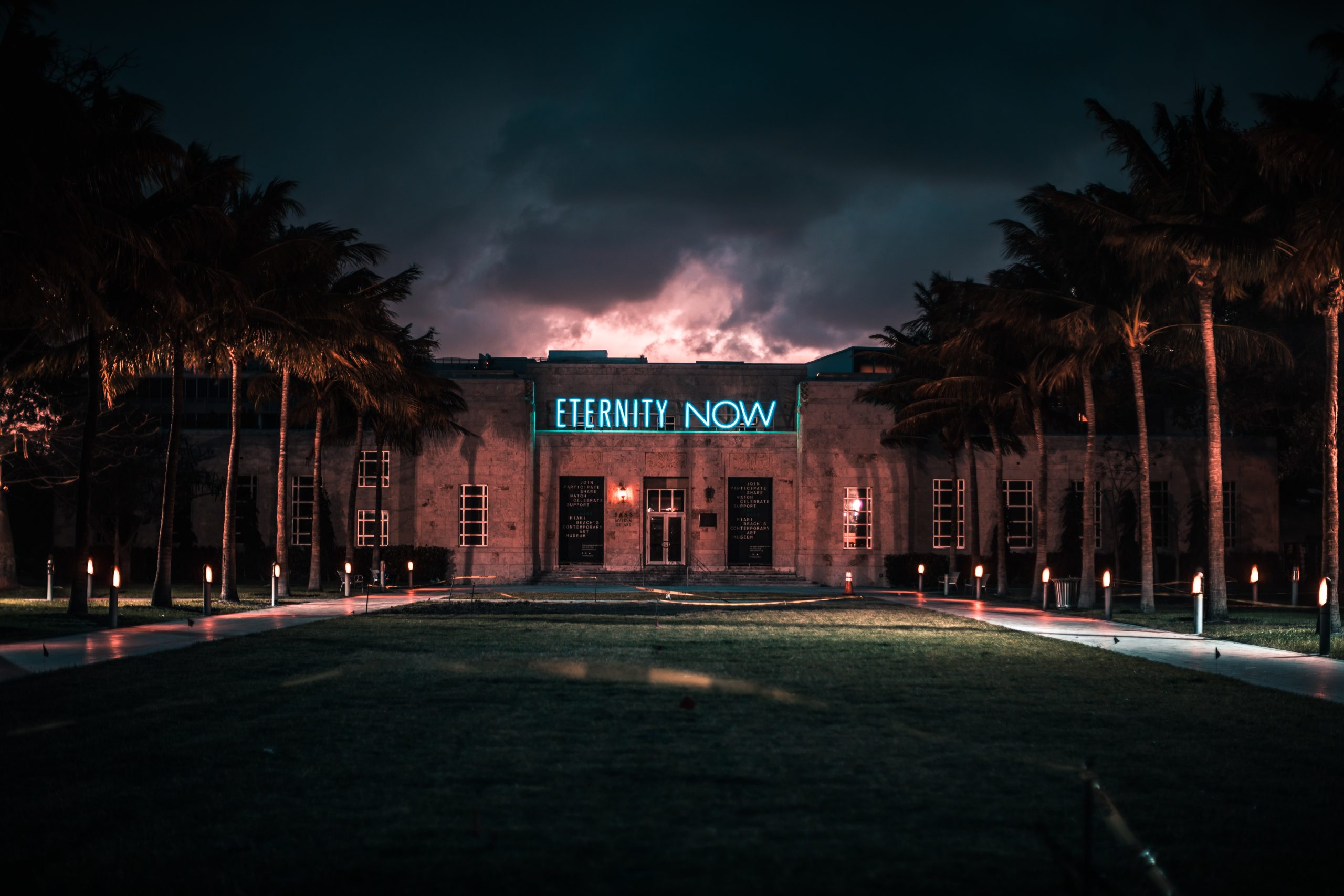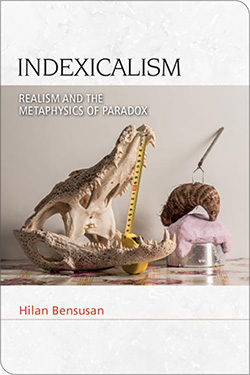
Graham Harman and Hilan Bensusan
Have you read Part 1 – 4?
Graham Harman: In your book, you speak of Leibniz as a “relational” philosopher in much the same sense of Whitehead. A monad is determined by its relations to other monads. While this can certainly be found in Leibniz, is it right to omit the fact that these relations only occur indirectly, thanks to God’s pre-established harmony? In other words, although Leibniz holds that my monad has eternally included the fact of asking you these interview questions, shouldn’t we also take seriously Leibniz’s claim that monads have no windows, and that all relations are really simulated relations rather than actual ones?[i]
Hilan Bensusan: There is a disagreement about Leibniz here. I understand that his relations are not simulated, and in fact that there is no more to the monads –and no other reason for God to choose a particular class of monads to compose the actual world– than the way they relate to all the others. God could have chosen an Adam that doesn’t sin, but then Adam would have connections with other monads that would make the overall effect in the world worse. God chooses worlds, that is, the choice is of classes of compossible relations.
In the last pages of the Theodicy, Leibniz presents the allegory of Pallas’ palace rooms to illustrate this[ii]. God first contemplated the infinite rooms in the palace and evaluated the perfection in each of them, which has to do with the effect of each class of monads. God then chose a world that seemed to be the most perfect in his judgment (which is the wisest but still free): a world where there are bad acts (where Adam sins) but which is overall still the best according to God’s judgment. God didn’t endow monads with relations but rather chose them because of their relations with each other.
This is why monads are worldly: by contrast with items in Kripke’s possible worlds, they cannot travel to another world without losing their identity. God had to choose between the overall effects of monads that were already placed in worlds and therefore were already in a harmony with all the others that would make windows entirely dispensable. Each monad does what it does; they don’t need to look around to determine their action. Monads have no substratum, nothing underlying their predicates (properties and relations).
This is why the law of Leibniz holds, whereas it doesn’t for Aristotle whose substances have substrata. The law states that indiscernibles are identical: things with the same properties and relations ought to be the same. I believe Leibniz inaugurated a way of thinking according to which individuals are fully dependent on the world that surrounds them. This monadological way of thinking has a general form that has instances also in Gabriel Tarde, Whitehead, Latour, and to some extent Husserl[iii]. I have explored the general idea of a monadology in detail in a book in Portuguese called A Diáspora da Agência, with Jadson Alves de Freitas[iv].
A quick summary of this path from Leibniz to Whitehead, and already hinting at indexicalism, can be in a Process Studies article called “The Road from Leibniz to Whitehead (and Beyond)”[v]. The general idea is that in monadologies there are substances, or actants, or actual entities, and they are very important because they are poles that harbor predicates (properties and relations). It is as if they are relata that are crucial in order for relations to hold. Still, these items are not independent of each other, since they are constantly relating to each other or experiencing each other: even though they might dispense with windows because all their predicates are already in them from the outset.

There are important differences between various monadologies, and an important one is described by Deleuze as one between monadologies of closure (like Leibniz’s) and monadologies of capture (like Whitehead’s)[vi]. Monadologies are interesting departures from some aspects of substantialism and in that sense, they are a step towards indexicalism. But they are still substantivist. Incidentally, your [Graham Harman’s] object-oriented philosophy is a further departure from the idea of full presences that can still be found in monadological systems. These systems still belong to the genealogy of metaphysics because full presences are still postulated; in monadological systems, everything is transparent to something. In OOO, by contrast, this is not the case since real objects are withdrawn elements that break with total exposure, and to some extent to the immanence that monadologies embrace[vii].
Graham Harman: Let’s end on a freer and easier question. Readers tend to think of books as accurate pictures of the present moment, when in fact they usually take a few years to be published, and by that time the author has already moved on to something else. What is the “actual” philosophical present of Hilan Bensusan? Where have you moved to since writing Indexicalism?
Hilan Bensusan: Indeed, I’ve moved on to some extent. Still, Indexicalism is something I continue to recommend, even though my formulations have changed a bit since the book has been written.
The most direct improvement is due to my joint work with Joan Gimeno Simó and Guilherme da Silva where we define address, a term I used above in my answer to question 5. An address is whatever is fixed when a reference is fixed: it is a deictic content of an expression that makes explicit that reference is indexical at its core. From the notion of address, we develop a conception of propositions –that is, understood as the meaning of sentences, the content of (propositional) attitudes and the bearers of truth– that intends to avoid the shortcomings of current approaches. The basic idea is that propositions are thoroughly indexical items.
This is an interesting development where we formulate a semantic indexicalism that can encourage the indexicalism I recommend in the book, but that doesn’t entail it. The idea of indexical propositions also hints toward the paradoxes that appear when deixis is absolute. As Paul Livingston remarked during the book symposium, there is a common indexical structure to many paradoxes: it is enough to consider the liar paradox, “this sentence is false”. This connection between the indexical and the paradoxical still leaves much to be explored, and it is taking me towards the work of Graham Priest on the nature of dialeithea. As a first approximation, I believe that the common structure of many paradoxes can be given by Levinas’ paradox of freedom: freedom is what dismantles itself by giving rise to responsibility.
“An address is whatever is fixed when a reference is fixed: it is a deictic content of an expression that makes explicit that reference is indexical at its core”
Indexicalism also inspires my current project of studying what I call the principle of addition, which is less than a ground and more of an abyss, much like the “second beginning” that Heidegger recommended[viii]. In Indexicalism I recommend realism concerning the Great Outdoors and an approach to perception as a supplement. I have been developing these ideas toward the thesis that addition is the main component of reality.
The idea is that addition is a principle that structures the insufficiency and incompleteness of whatever seems to be present; existence itself is hostage to addends. This philosophy of addition builds on Derrida’s notion of supplement, on Georges Bataille’s idea of excess, on Marisol de la Cadena’s claim that whatever exists is more than one (but is never fully double or multiple), on Jean-Luc Nancy’s conception of struction as the arrival of a non-assembled ensemble that is common to constructivism and deconstruction, and finally on the new approaches to transcendence that have learned relevant lessons from the philosophies of immanence of the late 20th Century[ix]. The centrality of addition reflects the thought that in perception the outdoors is constantly producing transcendent addends that reshape what there is by changing not only the future but also the archives of the past.
Addition as a logical operation is, I would like to claim, more basic than negation, and in that sense, it is an addition rather than determinate negation that produces what is concrete. This places the philosophy of addition in direct contrast with Hegelian dialectics but also unfolds interesting consequences within logic itself. The logic of the supplement is perhaps what I call an antimonotonic logic, one where the principle of monotonicity never holds: which means that no conclusion can be maintained if anything else is added to the class of premises. An antimonotonic logic can be provided from any logic, and it can be shown that the resulting logic is paraconsistent. Interestingly, a procedure that has to do with a break in monotonicity results in a break with trivialization through contradiction. Because the issues of paraconsistency (and paracompleteness) are defined in terms of operations of negation, this suggests that addition is what triggers the movements brought forward by negation.
This research into the principle of addition takes me to a direct examination of what transcendence could mean for us now. I believe that Speculative Realism and its offspring have sparked a renewed interest in different forms of transcendence[x]. I believe transcendence is best understood in strong connection with addition, and that has to do both with the criticism of substantivism and a departure from the efforts of the metaphysics of presence to make everything transparent.
Further, Nancy shows that there is a hidden element of transcendence both in constructivism and in deconstruction. To be a realist about addition –and about Nancy’s struction– is to offer what is probably itself a paradoxico-metaphysics. But this realism is to be combined with indexicalism and the metaphysics of the others, since the Great Outdoors is where addends come from. Addends that supplant and supplement what was there before set things off on a never-ending craving for further supplementation: addition, like Bataille’s excess, cannot be fully exorcised. Two similar models are to be compared with the model of the principle of addition: Ludueña’s disjuntology that postulates two poles –incomplete presences and specters- that interact while being separated and never becoming integrated into totality and Yuk Hui’s model of recursivity as a force behind contingency[xi]. The principle of addition makes me revisit some ideas about contingency from my book Being Up For Grabs[xii].
The book that I plan as a result of this research will start from where Indexicalism ends –with the idea of perception as a supplement– and move towards an account of how things are up for grabs because they are hostage to addends that impose their co-existence to whatever they find.
Get your copy of Indexicalism here
Proposes a radical new metaphysics where reality is not substantive but is indexical
- Puts forward a new theory of metaphysics where the furniture of the universe is deictic and substantives are conceived as thoroughly situate
- Extends the idea of metaphysics as transcendence, proposed by Levinas, to a process philosophy where the Other is not only human but ultimately the Great Outdoors
- Presents an approach to perception that makes it close to a conversation which portrays conceptual mediation as a special case of the Whiteheadian notion of importance
About the speakers…
Graham Harman is Distinguished University Professor of Philosophy at Southern California Institute of Architecture (on leave from the American University in Cairo). His previous books include Tool-Being (2002), Guerrilla Metaphysics (2005), Heidegger Explained (2007), Prince of Networks (2009), Towards Speculative Realism (2010), Circus Philosophicus (2010), L’Objet quadruple (2010), and The Prince and the Wolf [with Bruno Latour and Peter Erdélyi] (2011).
Hilan Bensusan is Professor of Contemporary Philosophy at the University of Brasilia. He is the author of Being Up for Grabs: On Speculative Anarcheology (Open Humanities Press, 2016). His other books are published in Portuguese: A diáspora da agência – Ensaio sobre o horizonte das monadologias (The diaspora of agency – Essay on the horizon of monadologies) (EdUFBA, 2018), Linhas de animismo futuro (Lines of future animism) (Mil Saberes, 2017), Heráclito – Exercícios de Anarqueologia (Heraclitus – Exercises in anarcheology) (Ideias e Letras, 2012) and Excessos e Exceções (Excesses and exceptions) (Ideias e Letras, 2008).
[i] G.W. Leibniz, Philosophical Essays, trans. R. Ariew & D. Garber. Indianapolis: Hackett, 1989.
[ii] G.W. Leibniz, Theodicy: Essays on the Goodness of God, the Freedom of Man, and the Origin of Evil, trans. E.M. Huggard. LaSalle, IL: Open Court, 1985.
[iii] Gabriel Tarde, Monadology and Sociology, trans. T. Lorenc. (Melbourne: re.press, 2012.)
[iv] Hilan Bensusan & Jadson Alves de Freitas, A diáspora da agência: ensaio sobre o horizonte das monadologias. (Salvador, Brazil: EdUFBA, 2018.)
[v] Hilan Bensusan, “The Road from Leibniz to Whitehead (and Beyond): Monadology and Process Philosophy,” Process Studies 49:2 (Fall-Winter 2020), pp. 234-253.
[vi] Gilles Deleuze, The Fold: Leibniz and the Baroque, trans. T. Conley. (Minneapolis: University of Minnesota Press, 1993.)
[vii] See Graham Harman, The Quadruple Object. (Winchester, UK: Zero Books, 2011.
[viii] Martin Heidegger, Contributions to Philosophy (Of the Event), trans. R. Rojcewicz & D. Vallega-Neu. (Bloomington, IN: Indiana University Press, 2012.)
[ix] Jacques Derrida, Of Grammatology, trans. G. Spivak. (Baltimore, Johns Hopkins University Press, 2016); Georges Bataille, The Accursed Share: An Essay on General Economy, vol. 1: Consumption, trans. R. Hurley. (New York: Zone, 1991); Marisol de la Cadena, Earth Beings: Ecologies of Practice Across Andean Worlds. (Durham, NC: Duke University Press, 2015); Jean-Luc Nancy,”Of Struction,” trans. T. Holloway & F. Méchain, parrhesia 17 (2013), pp. 1-10.
[x] Ray Brassier, Iain Hamilton Grant, Graham Harman, & Quentin Meillassoux, “Speculative Realism,” Collapse III (2007), pp. 306-449.
[xi] Yuk Hui, Recursivity and Contingency. (Londin: Rowman & Littlefield, 2019.)
[xii] Hilan Bensusan, Being Up for Grabs: On Speculative Anarcheology. (London: Open Humanities Press, 2016.)






